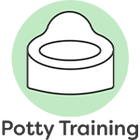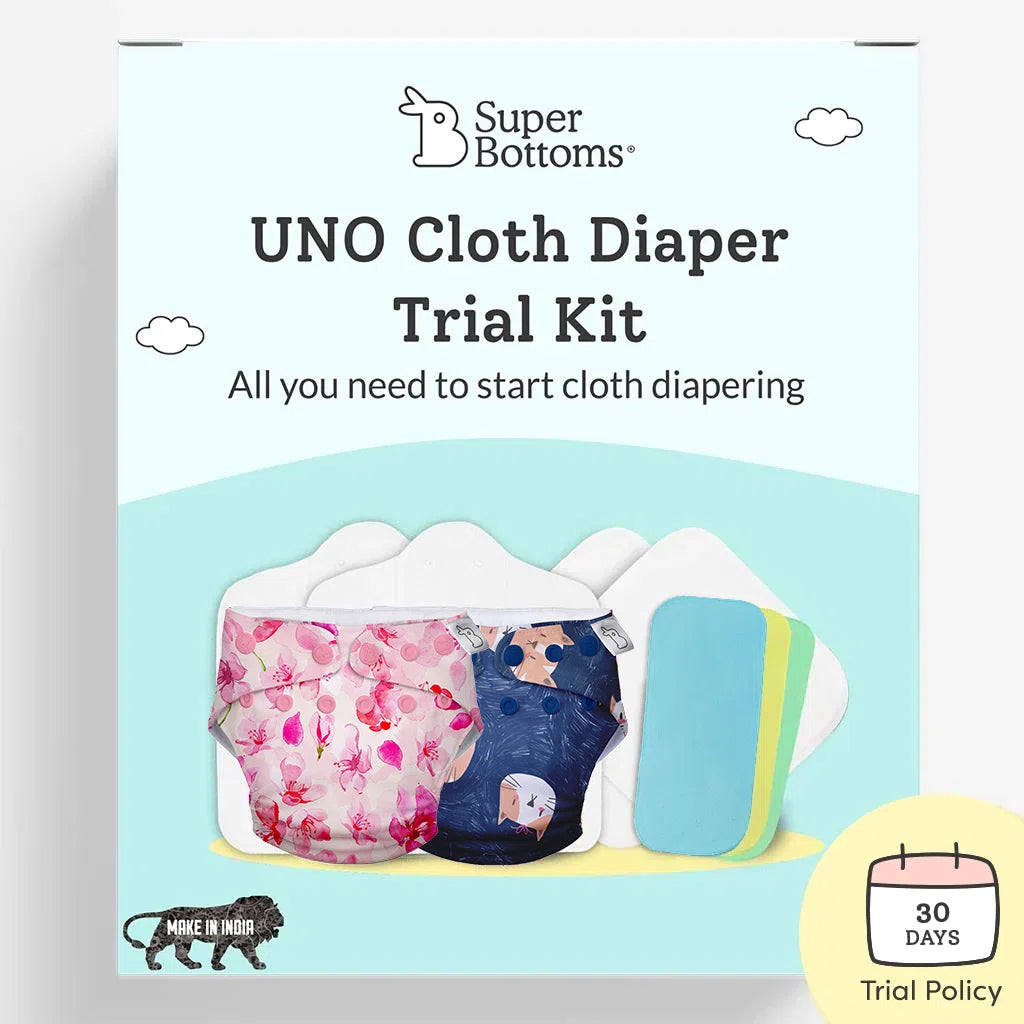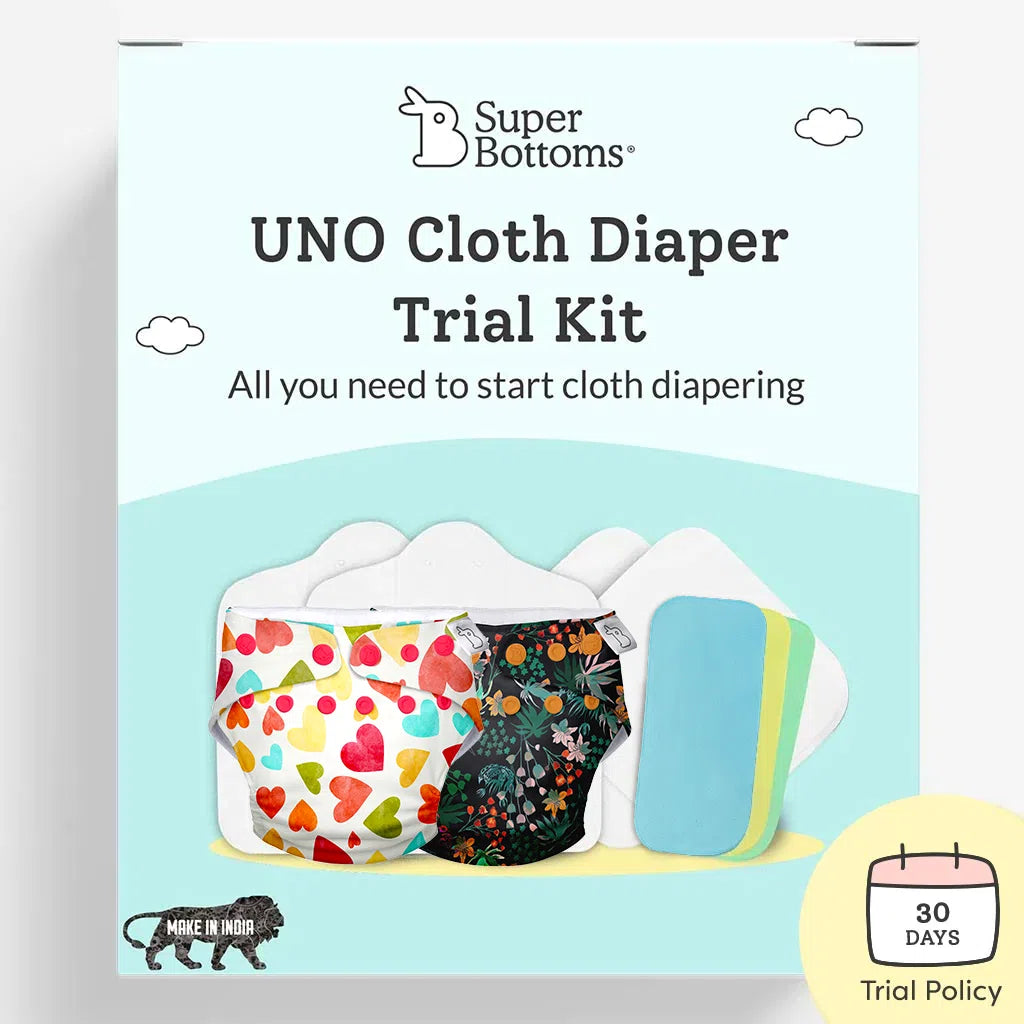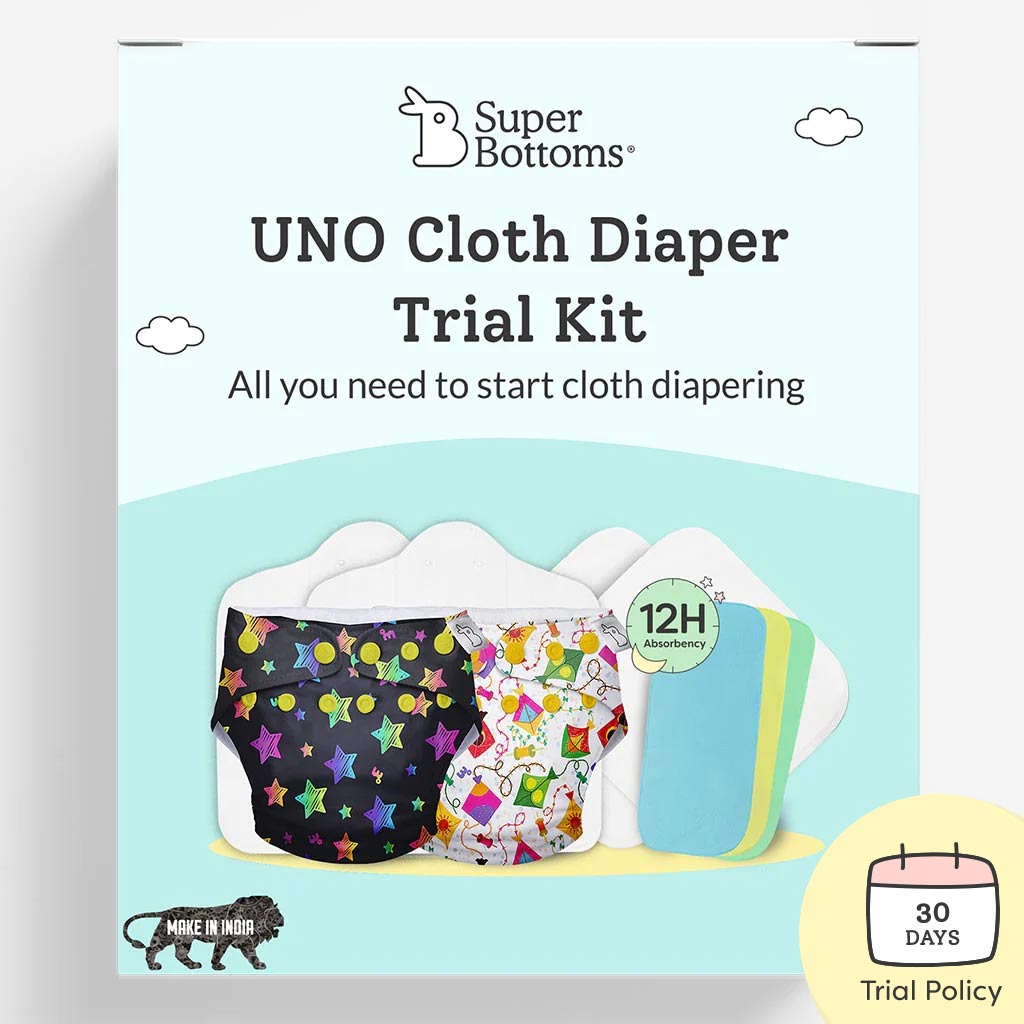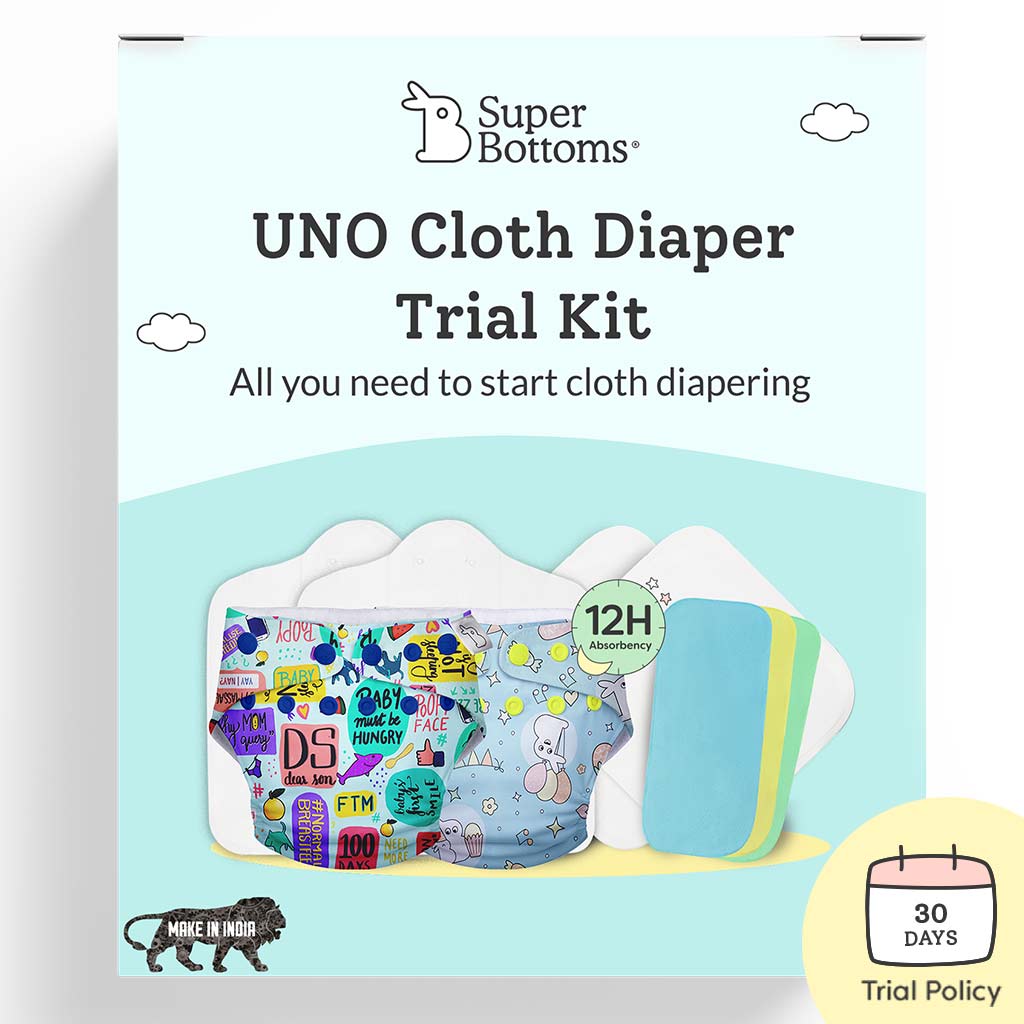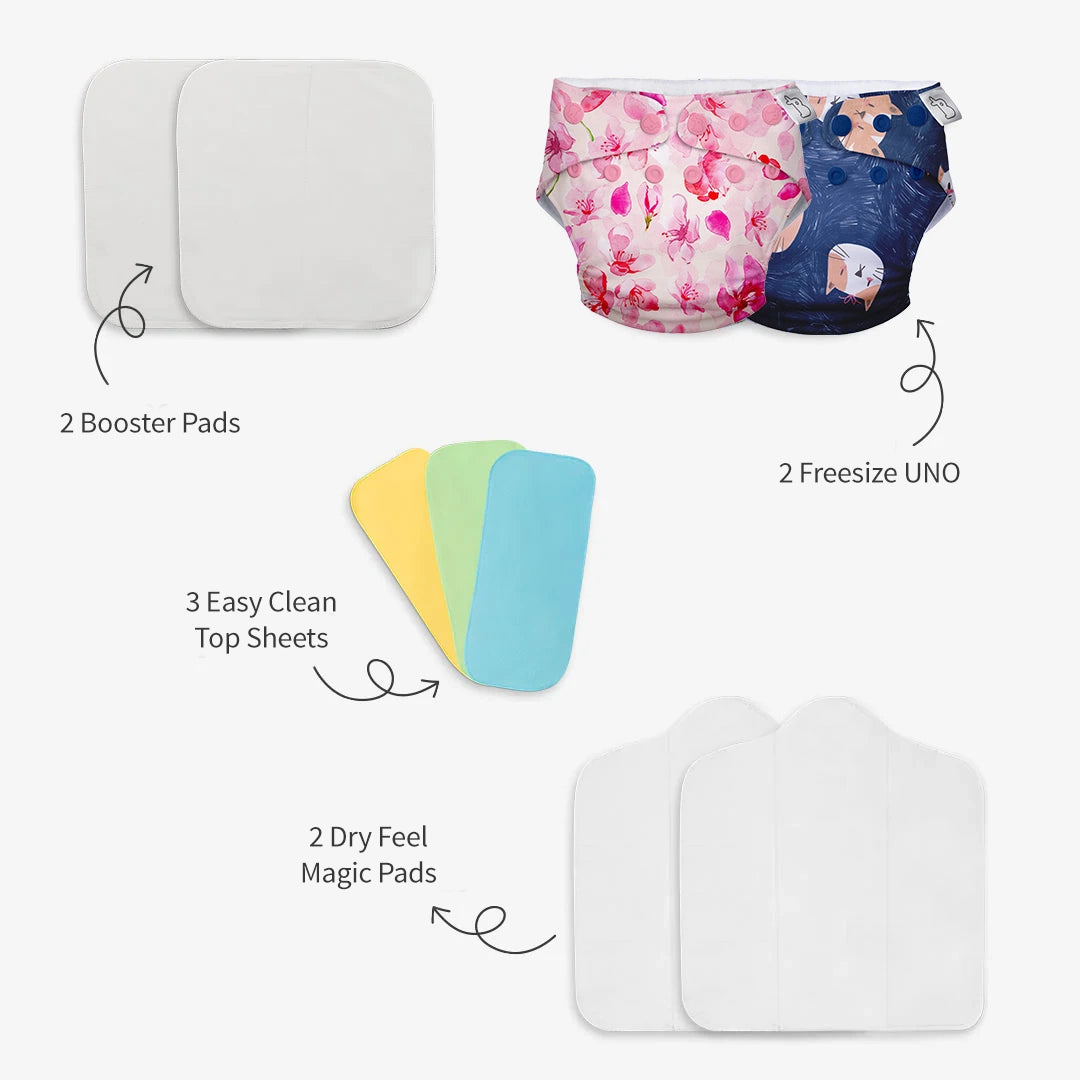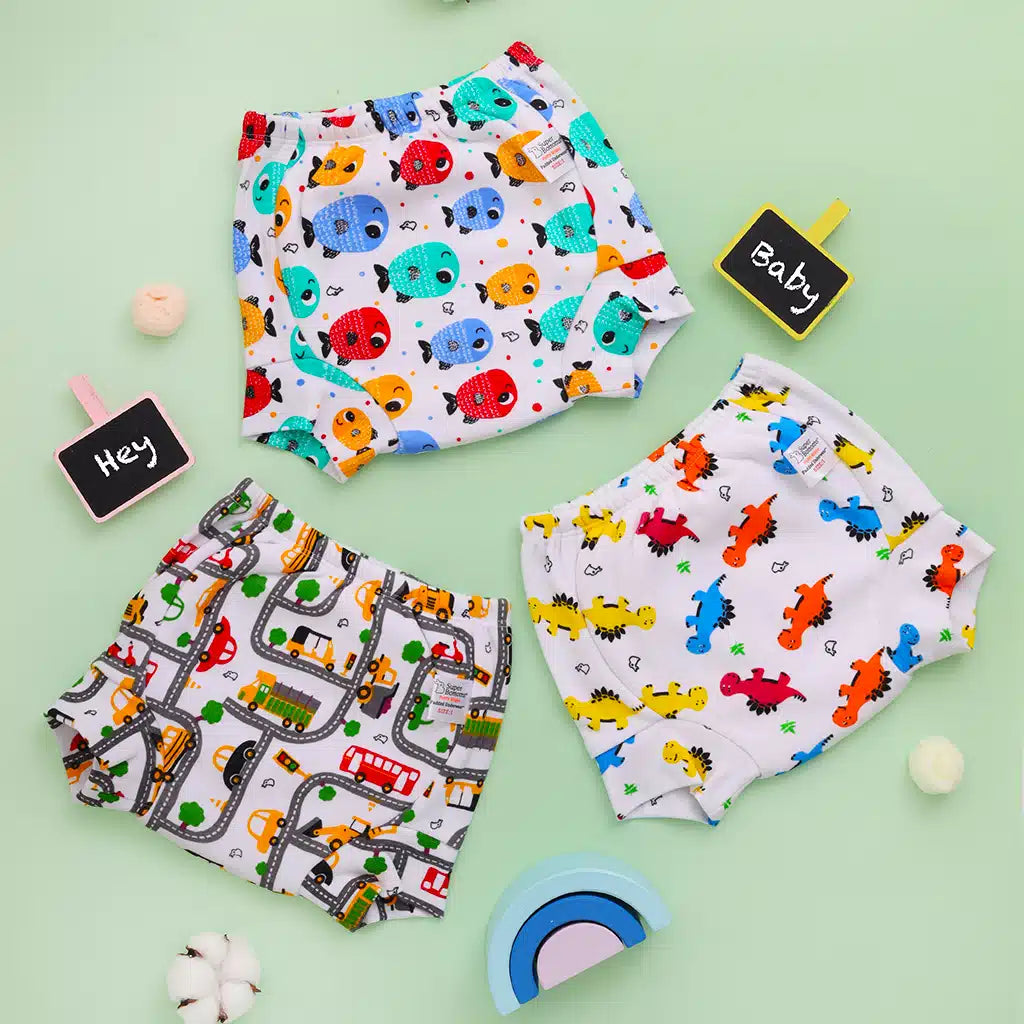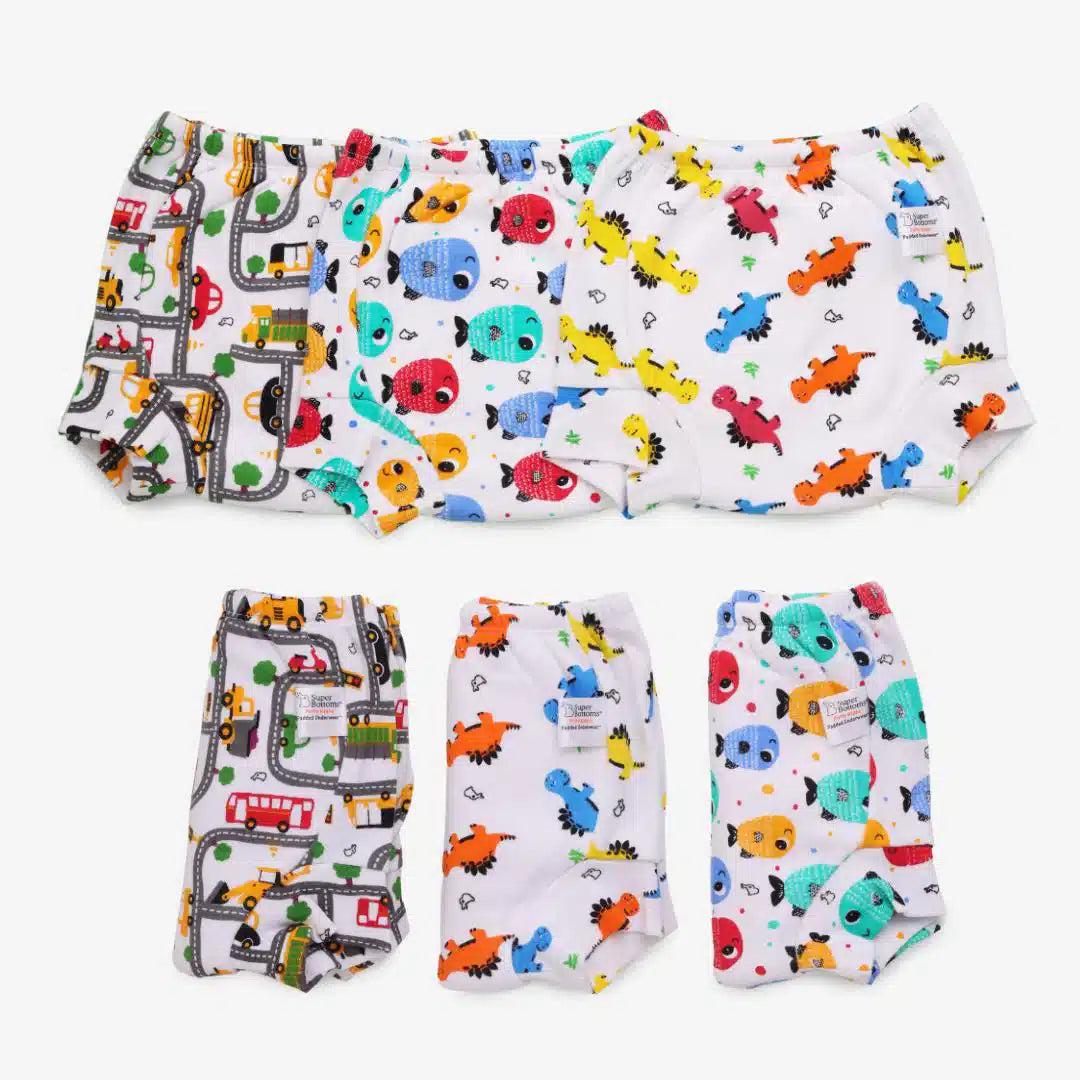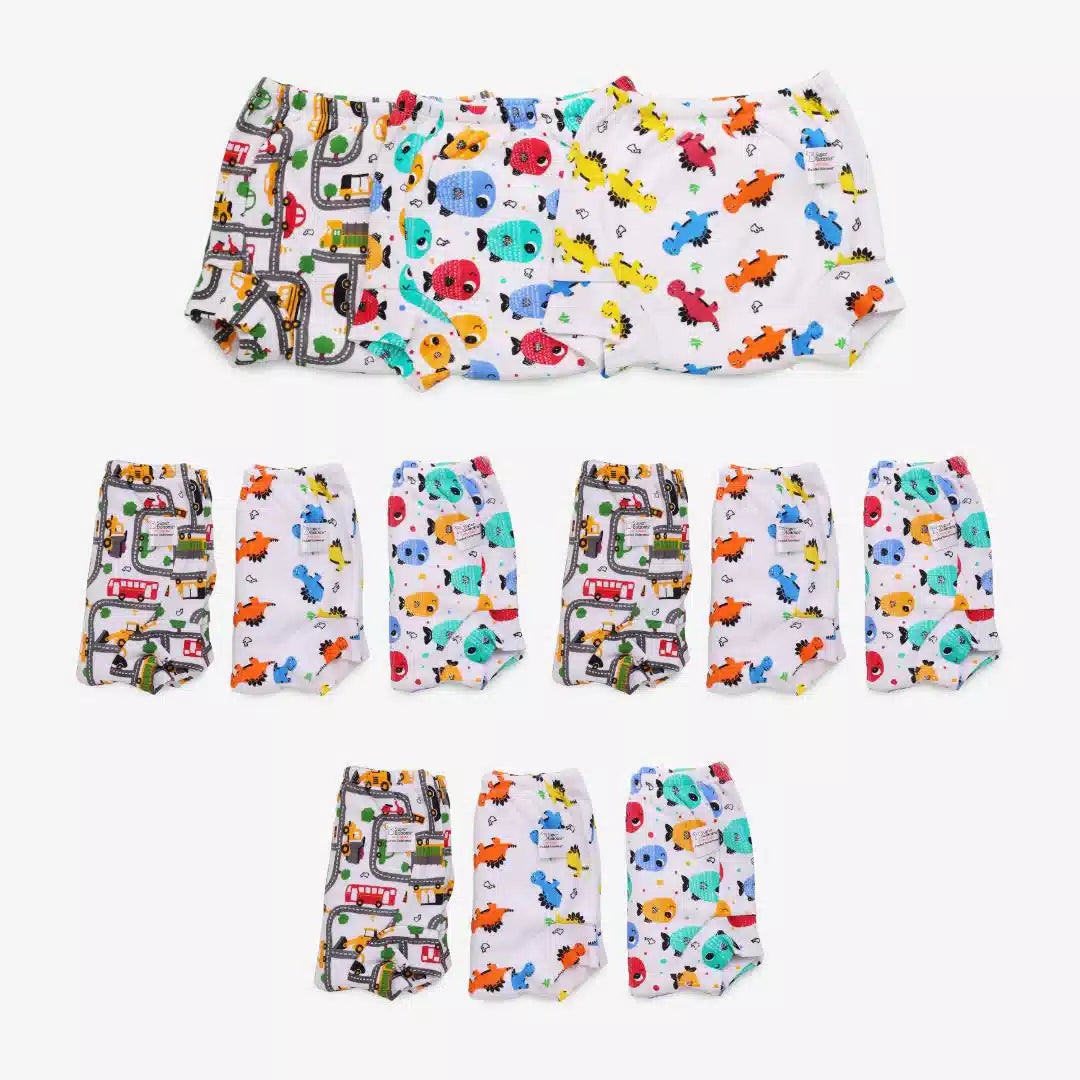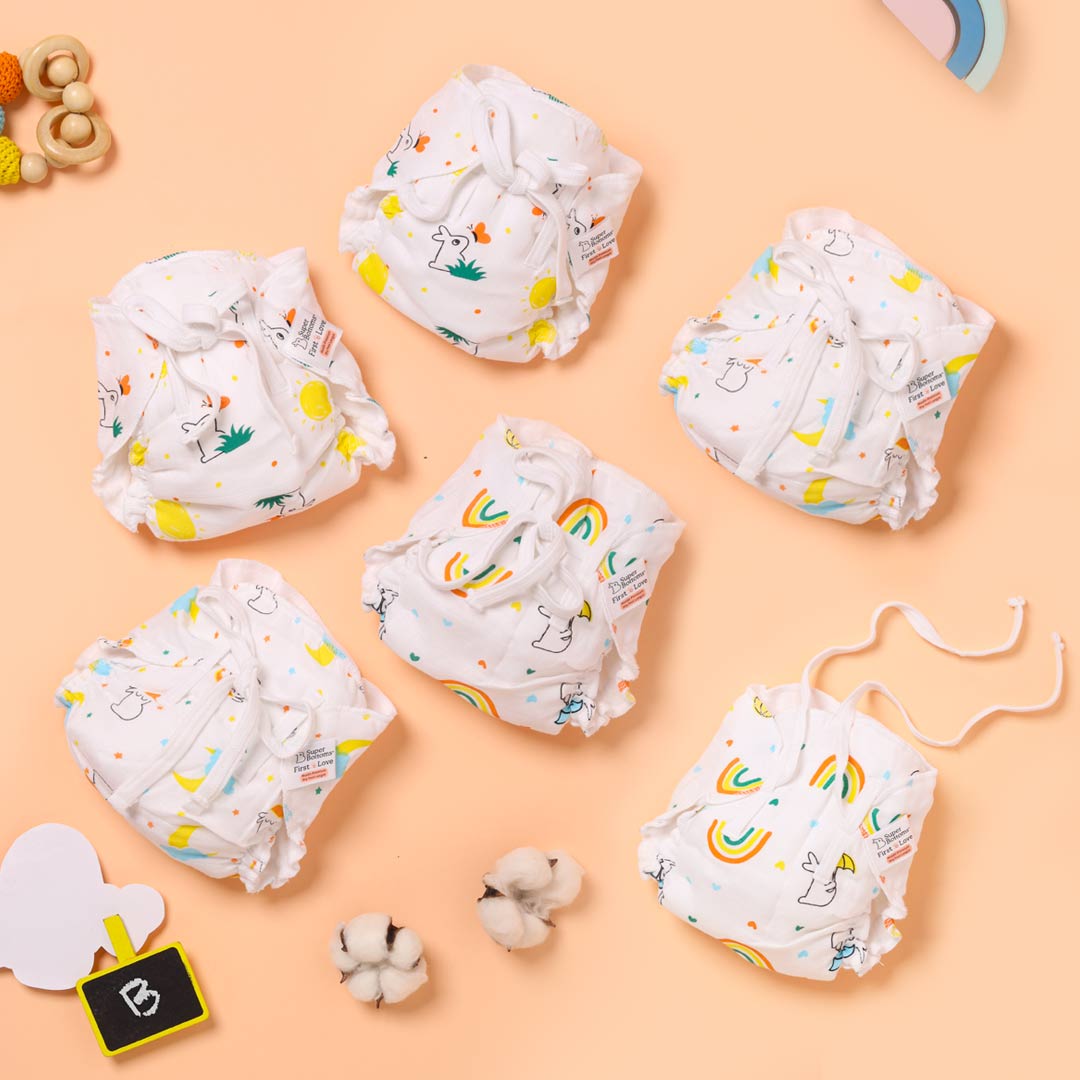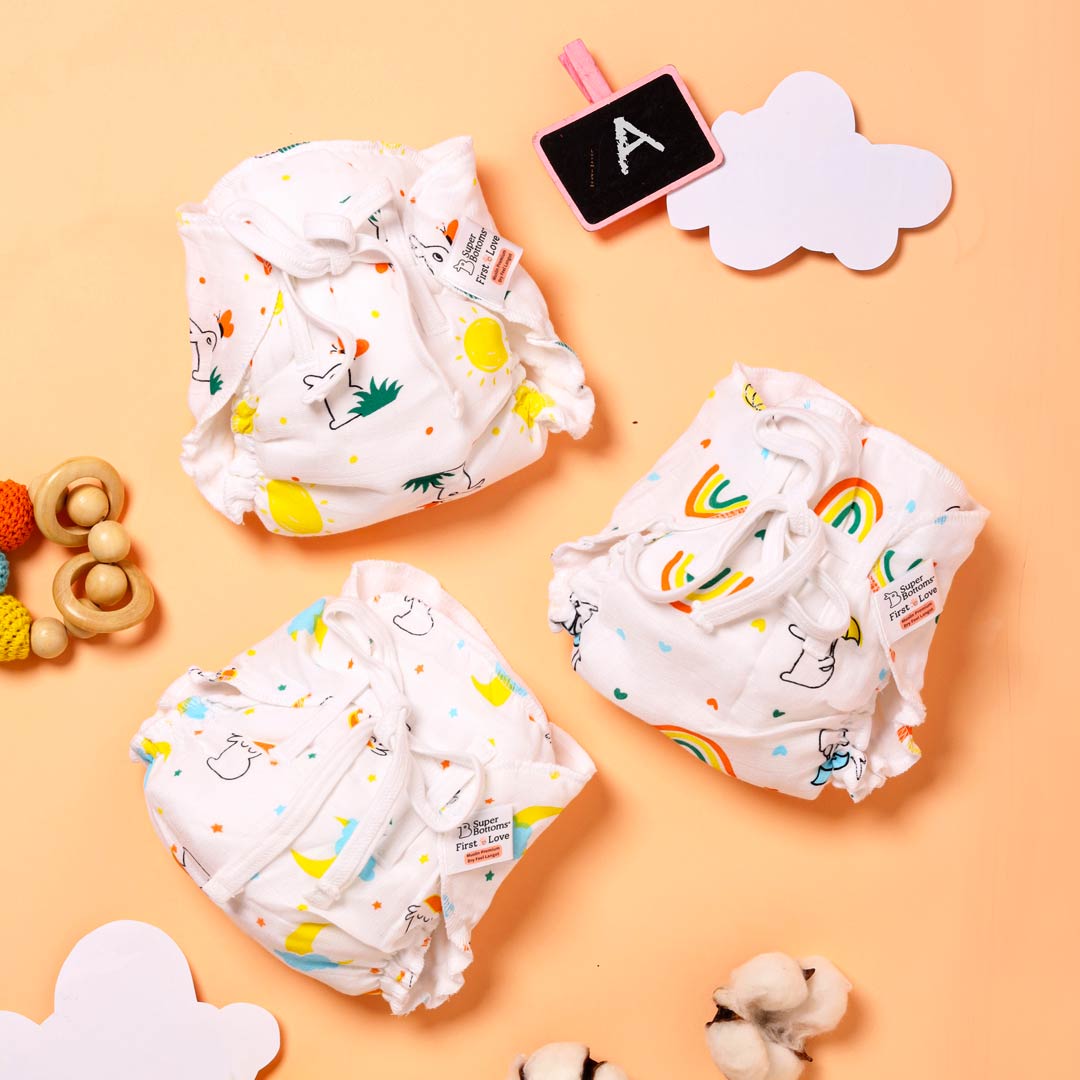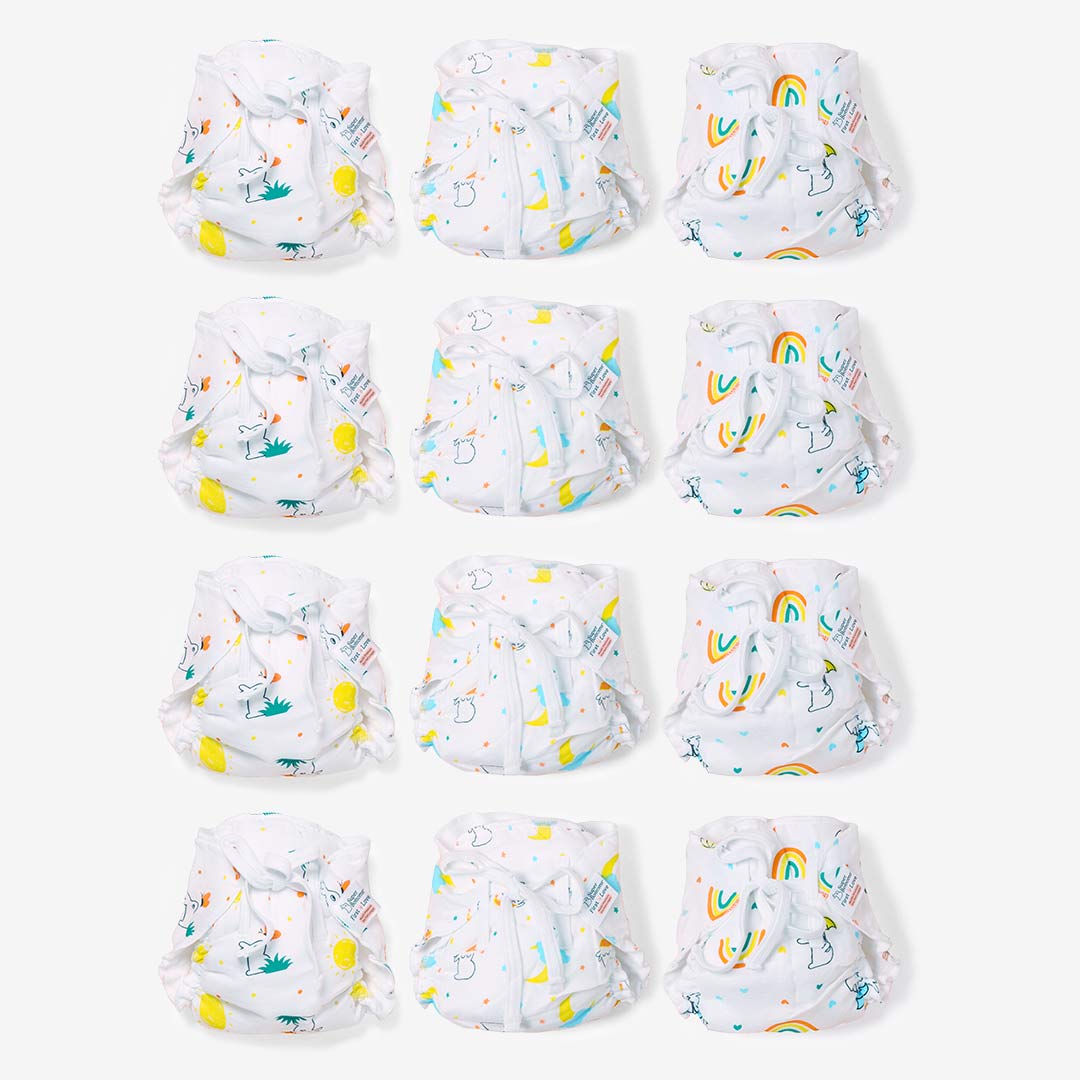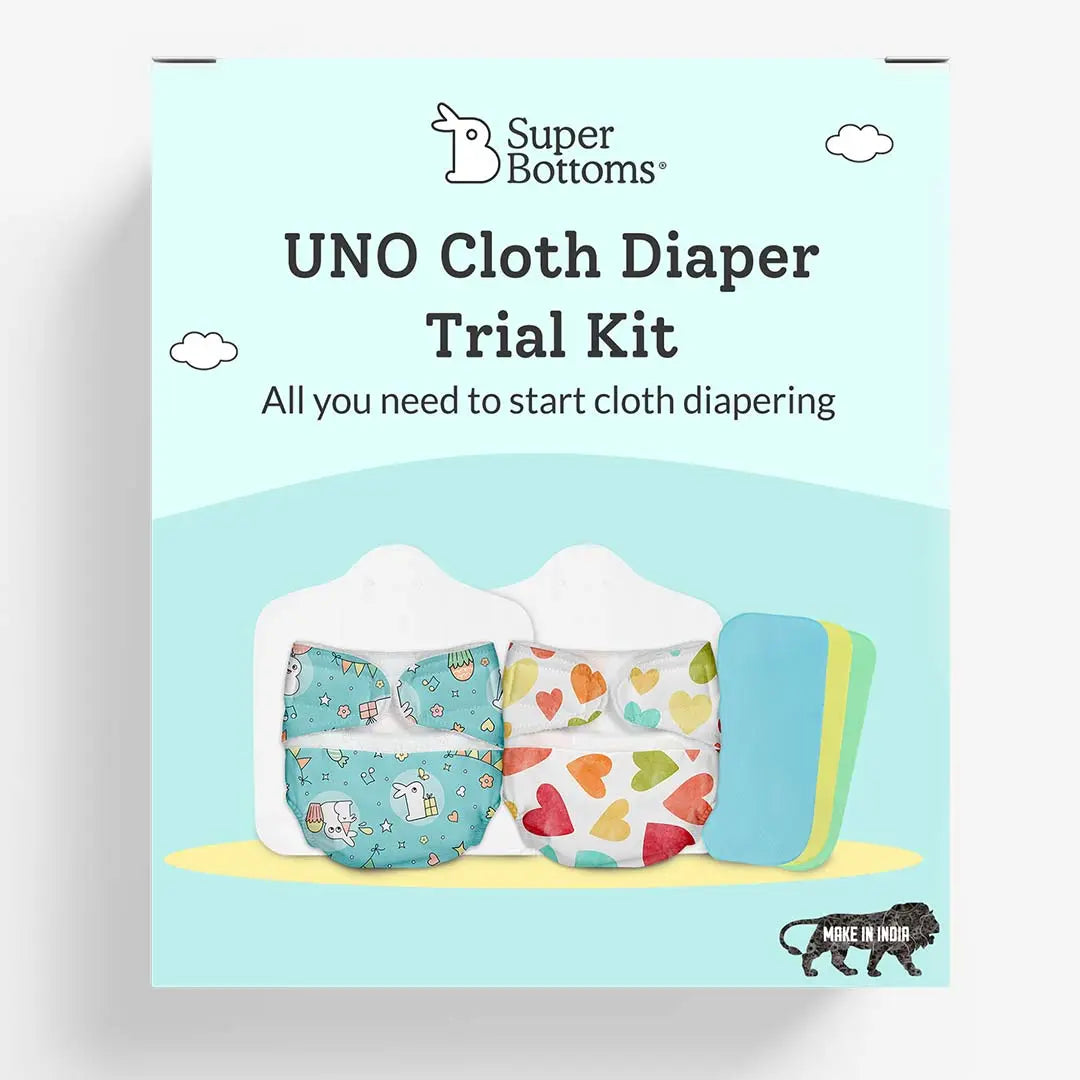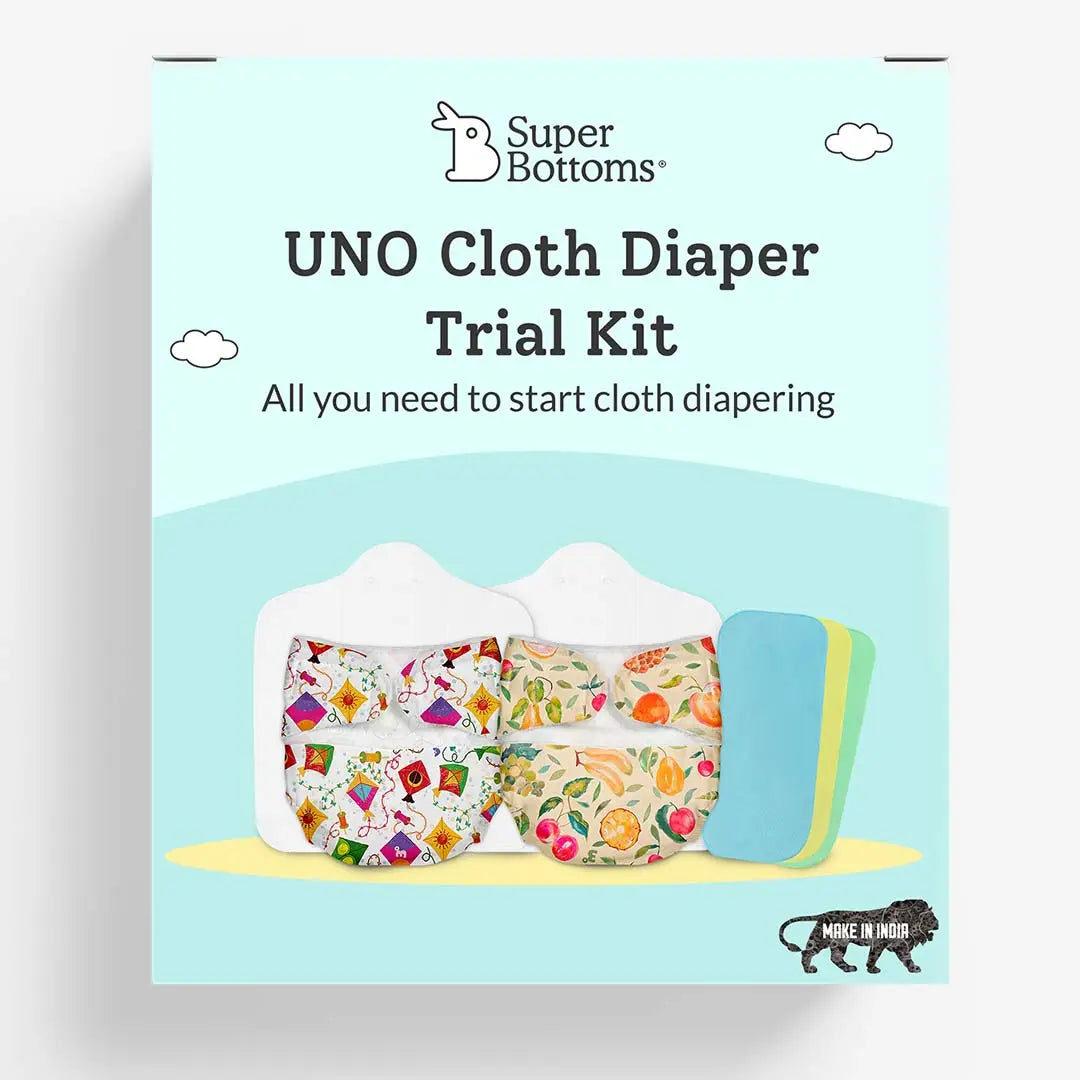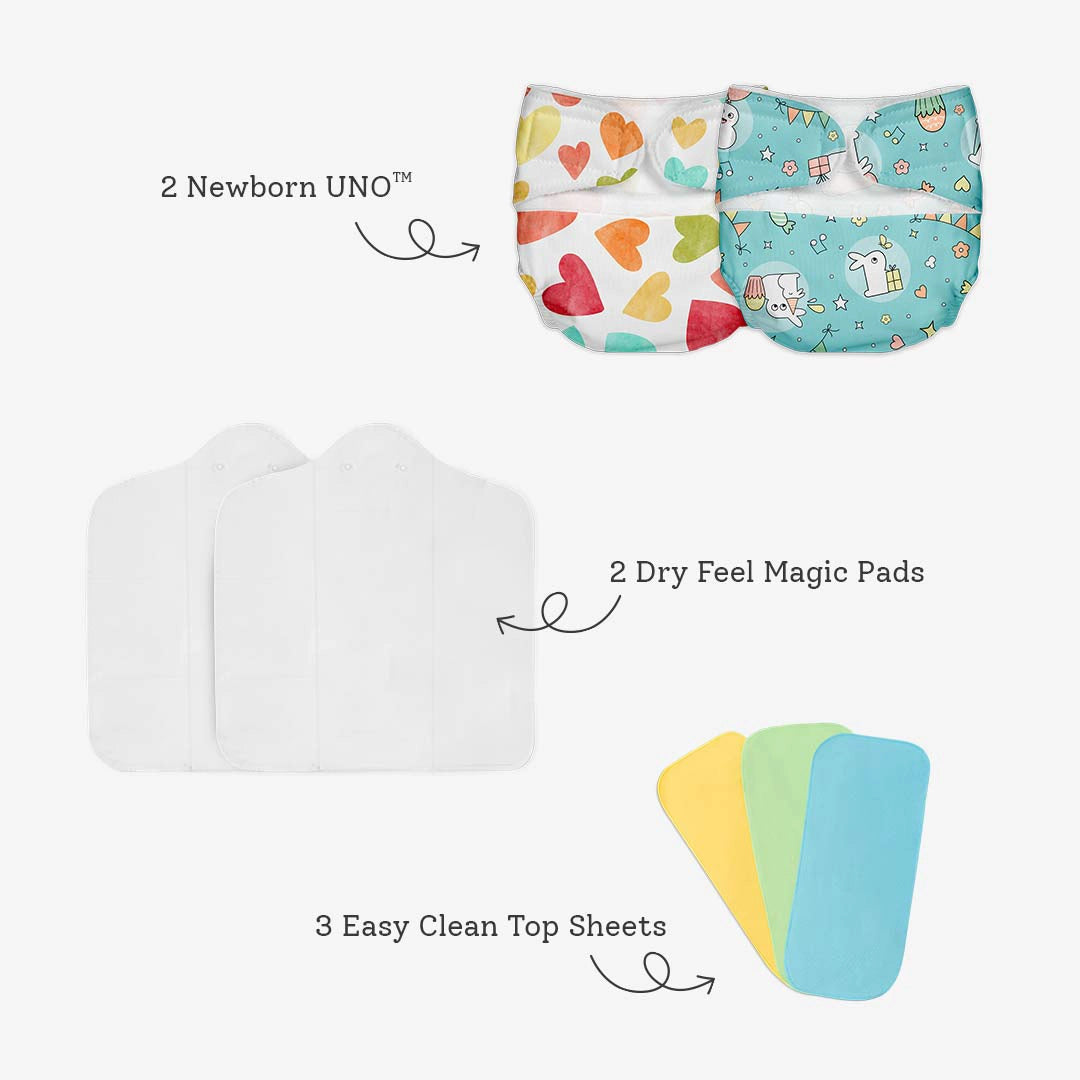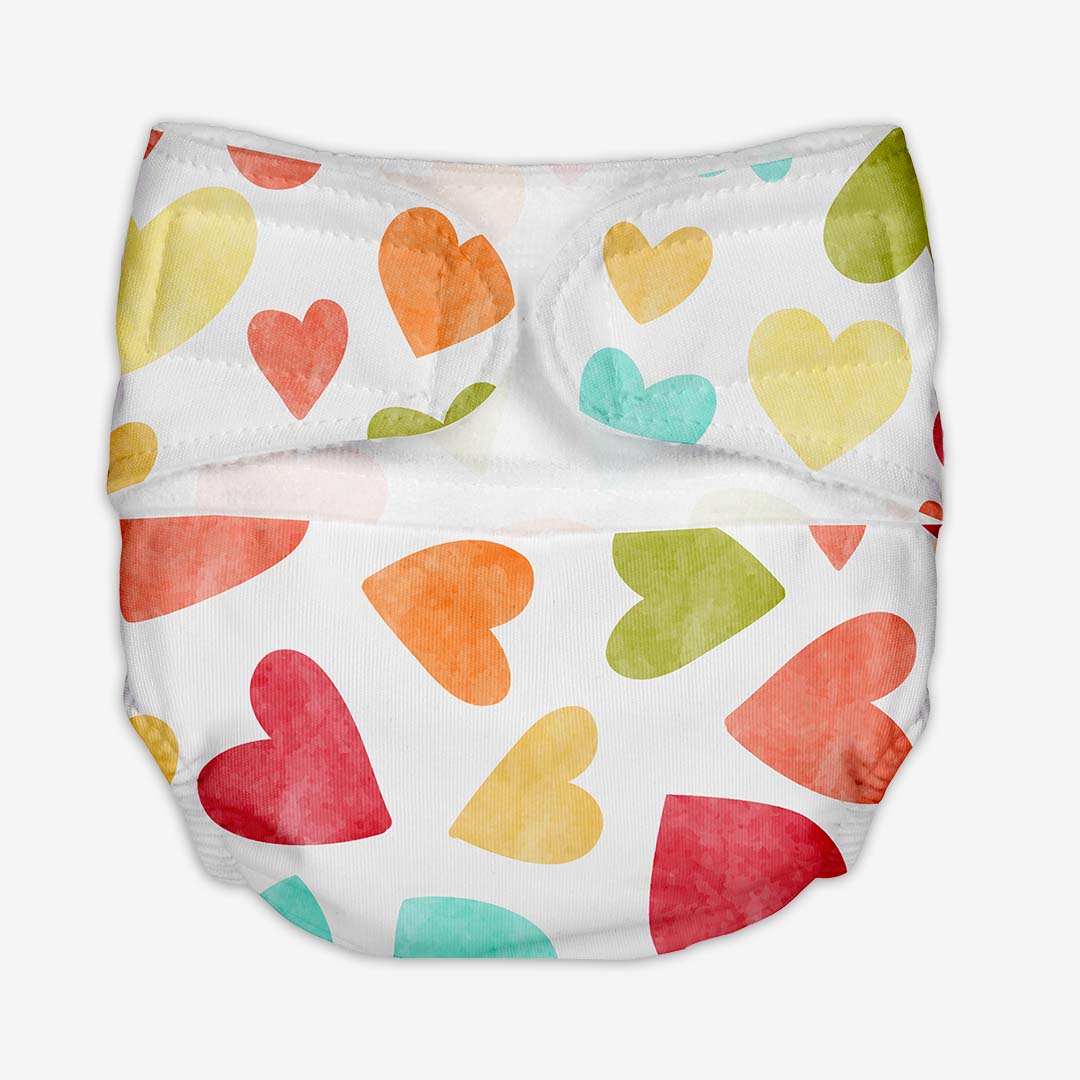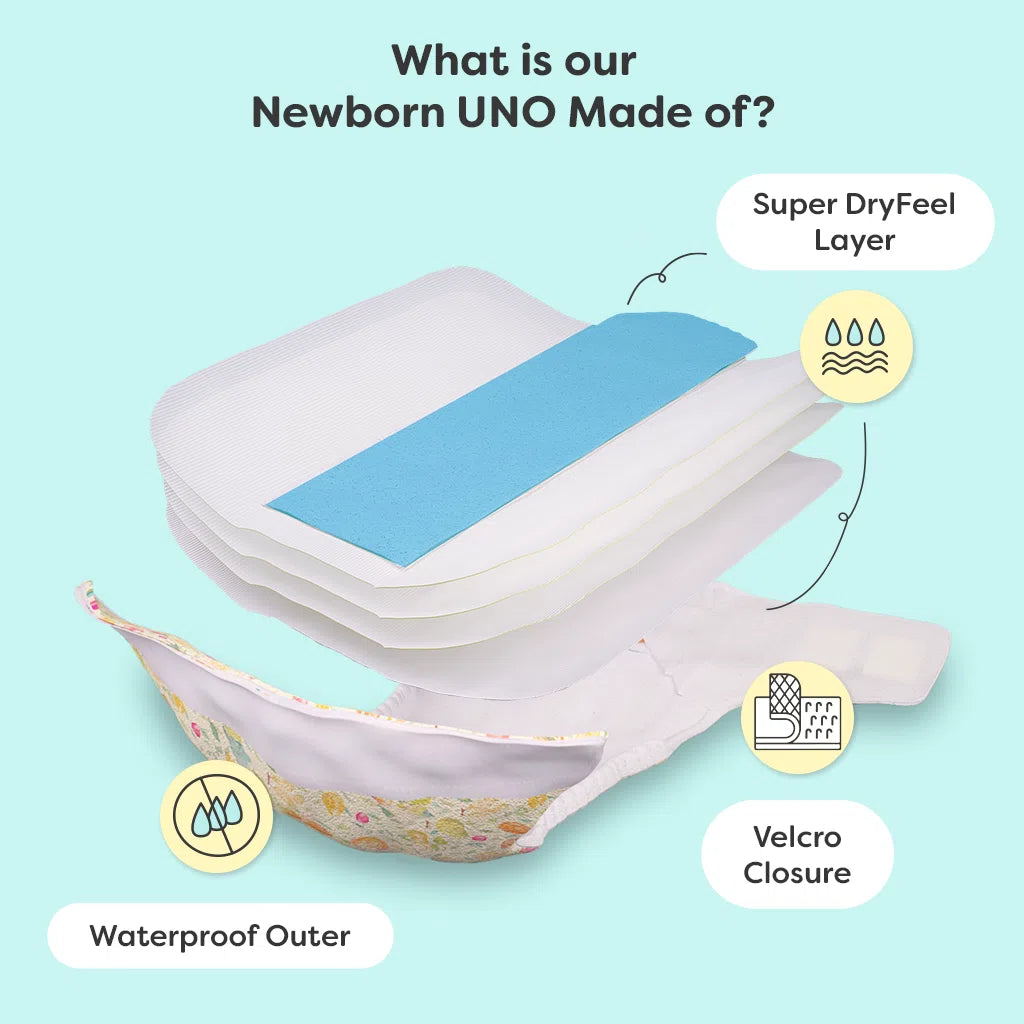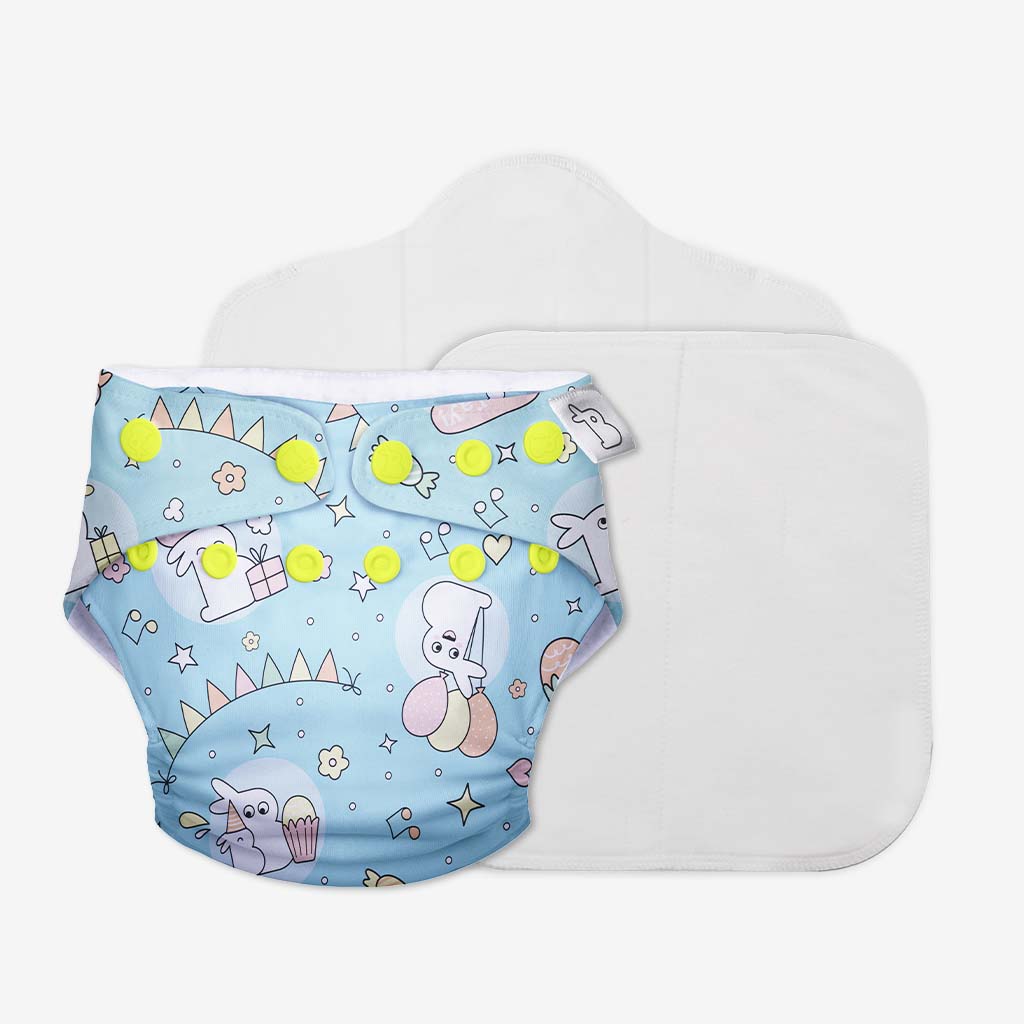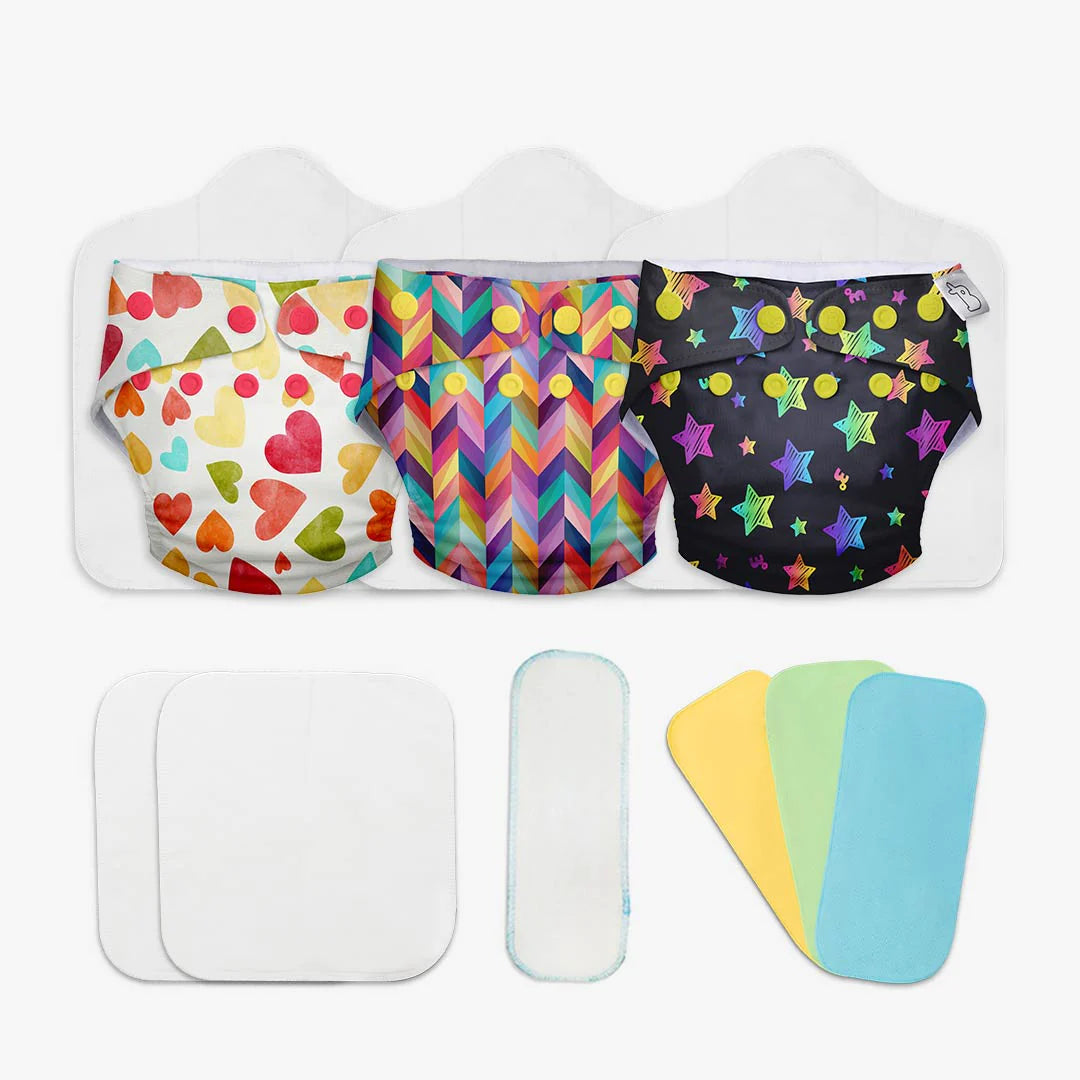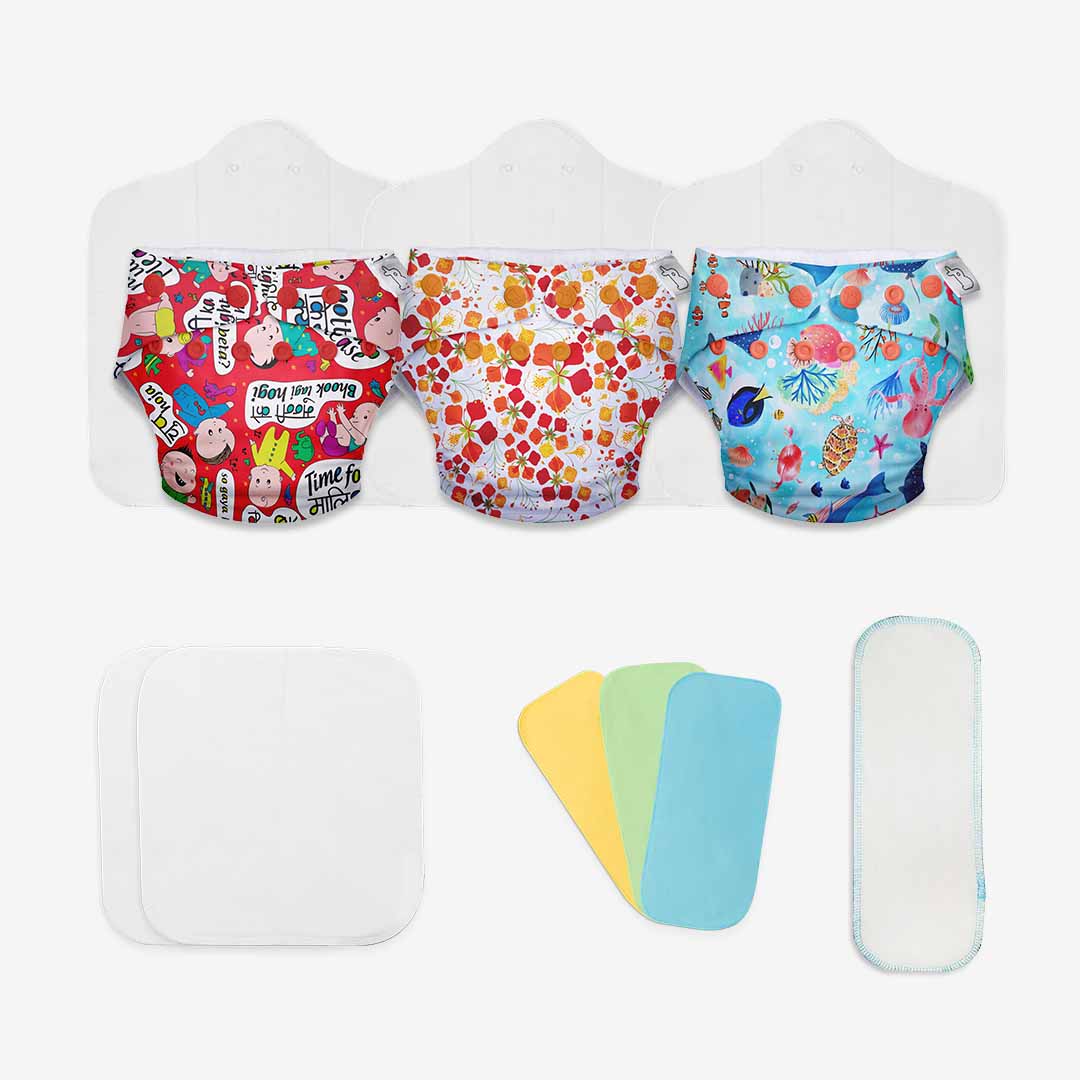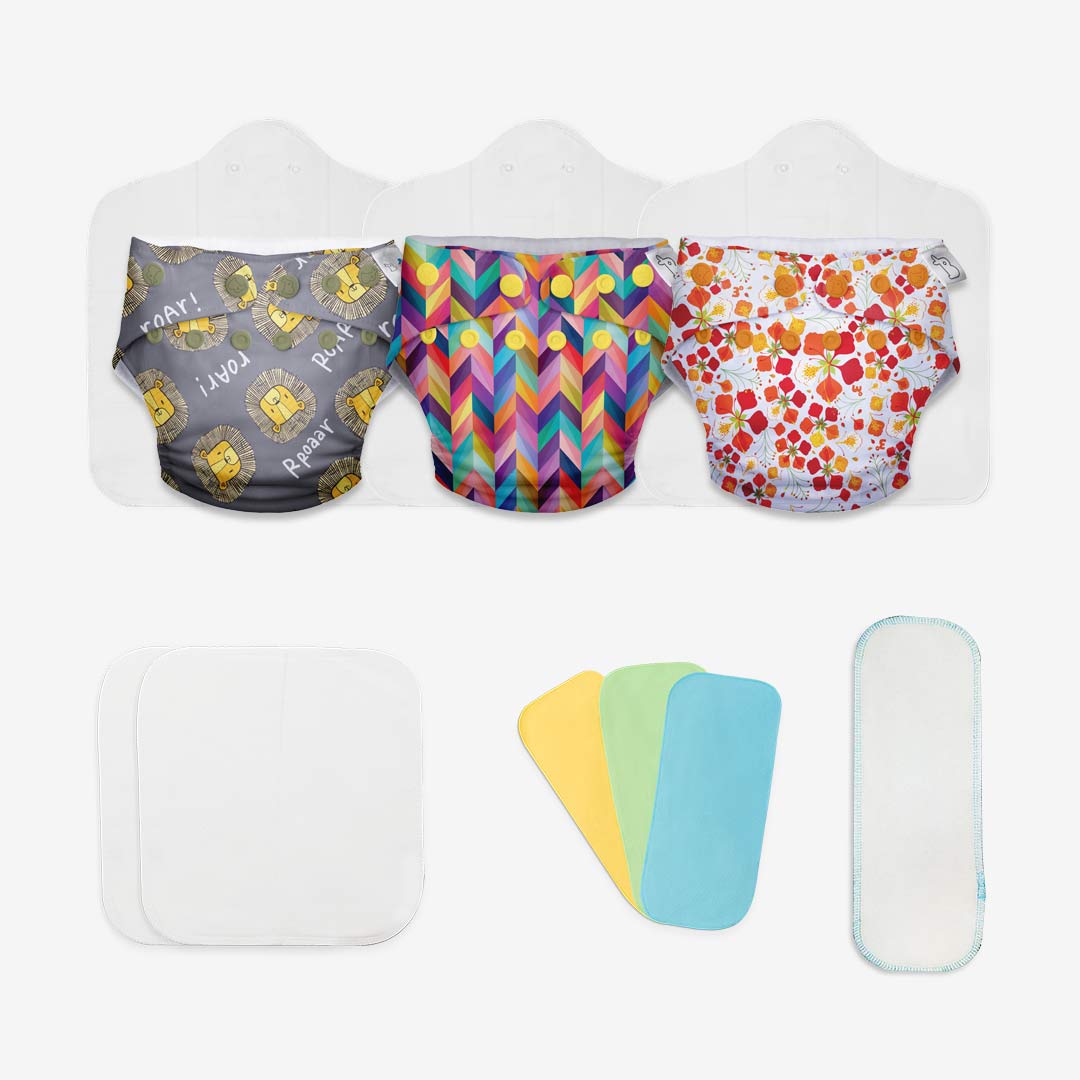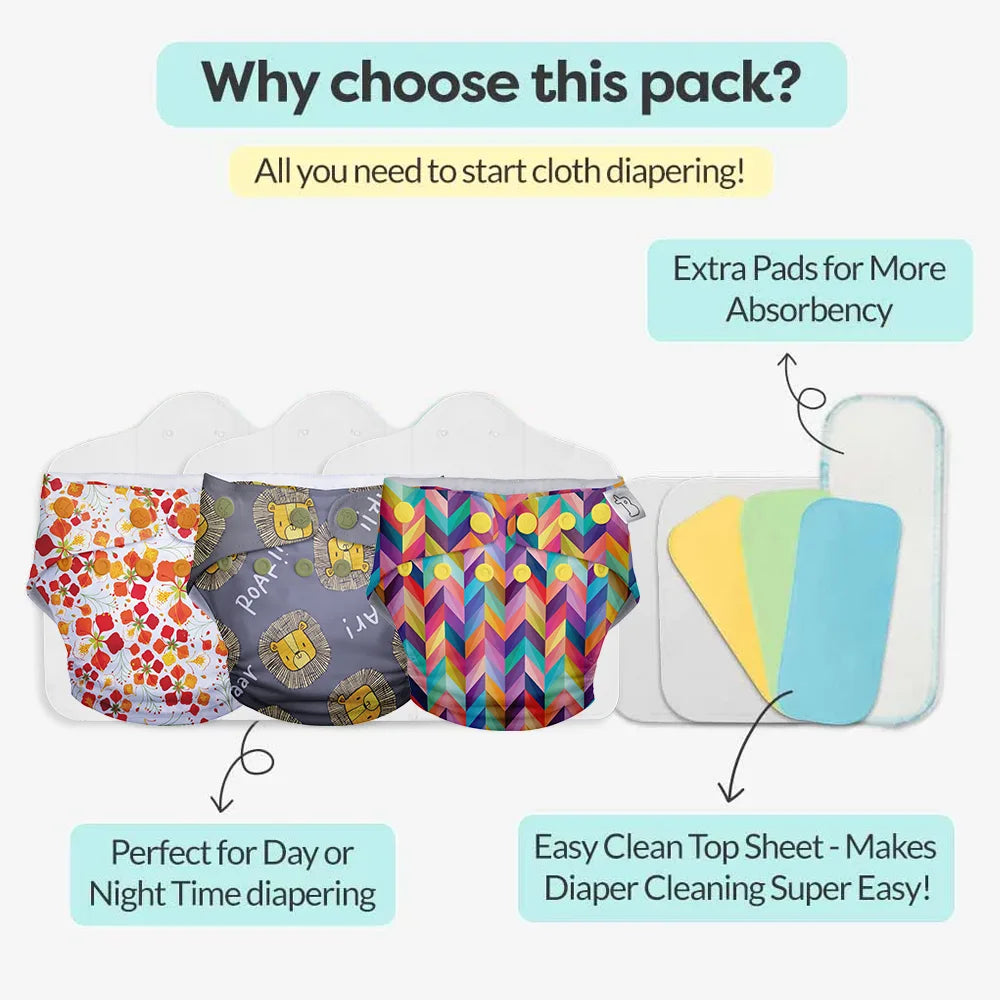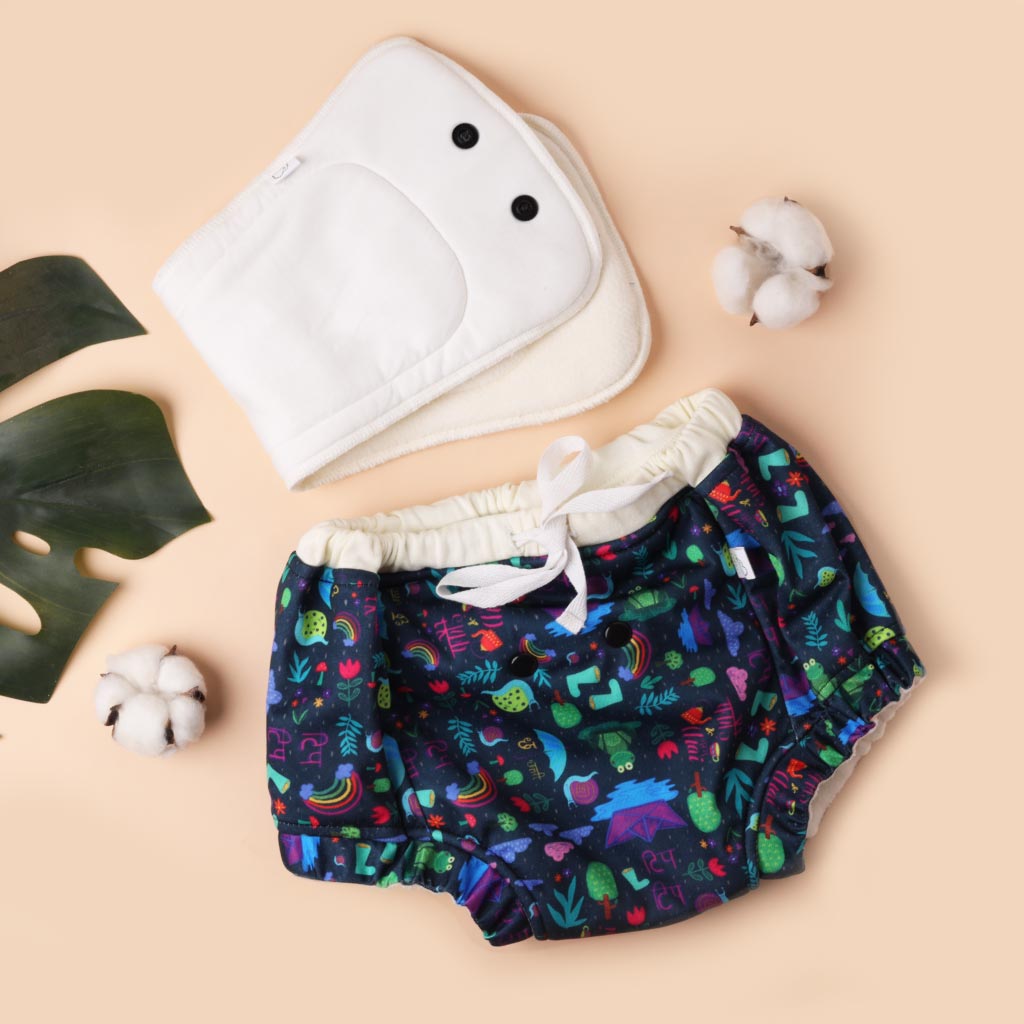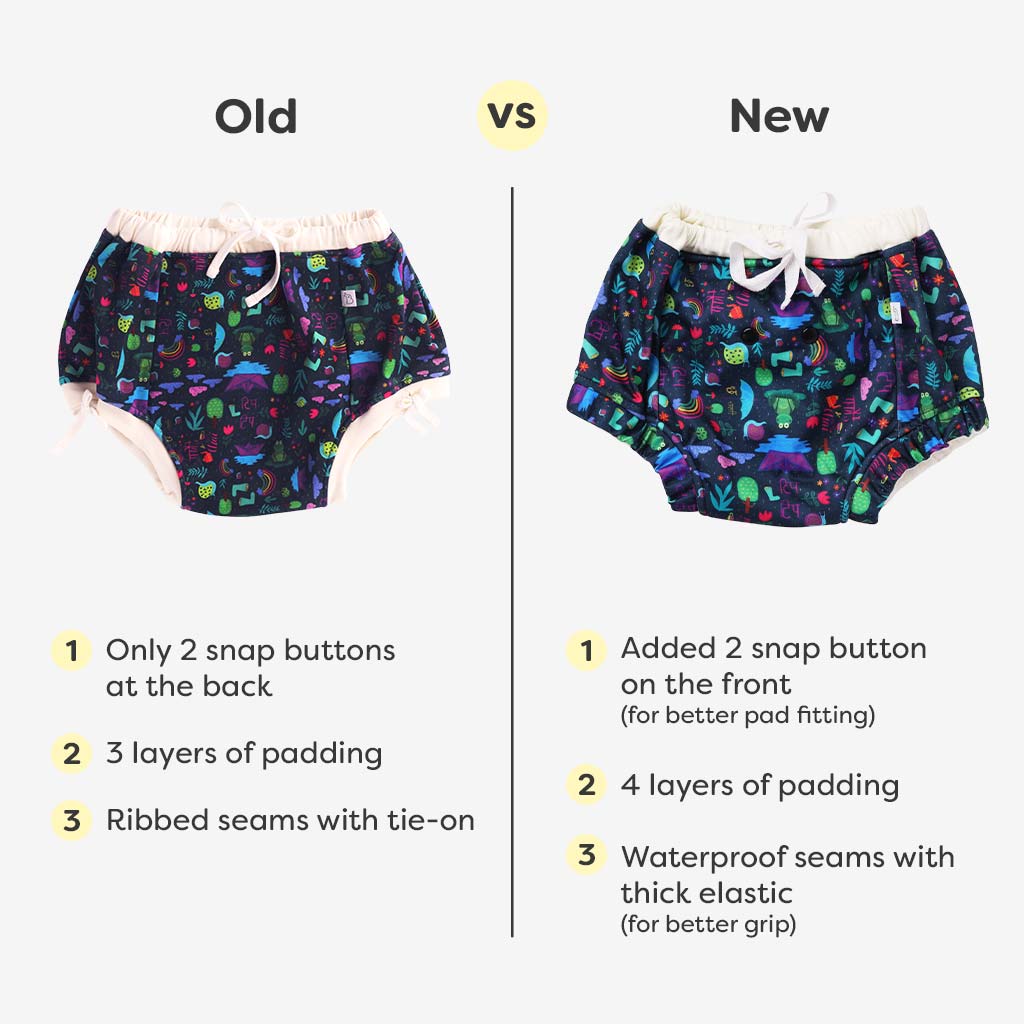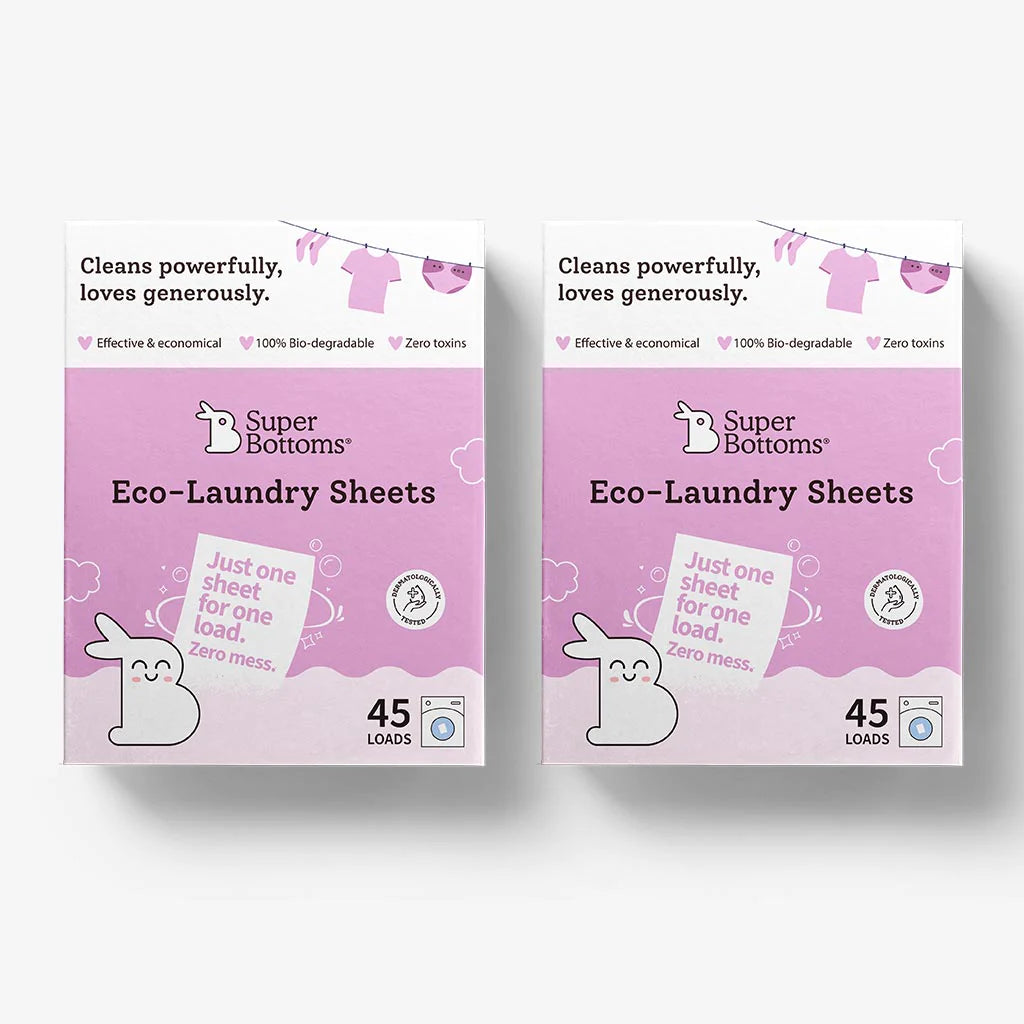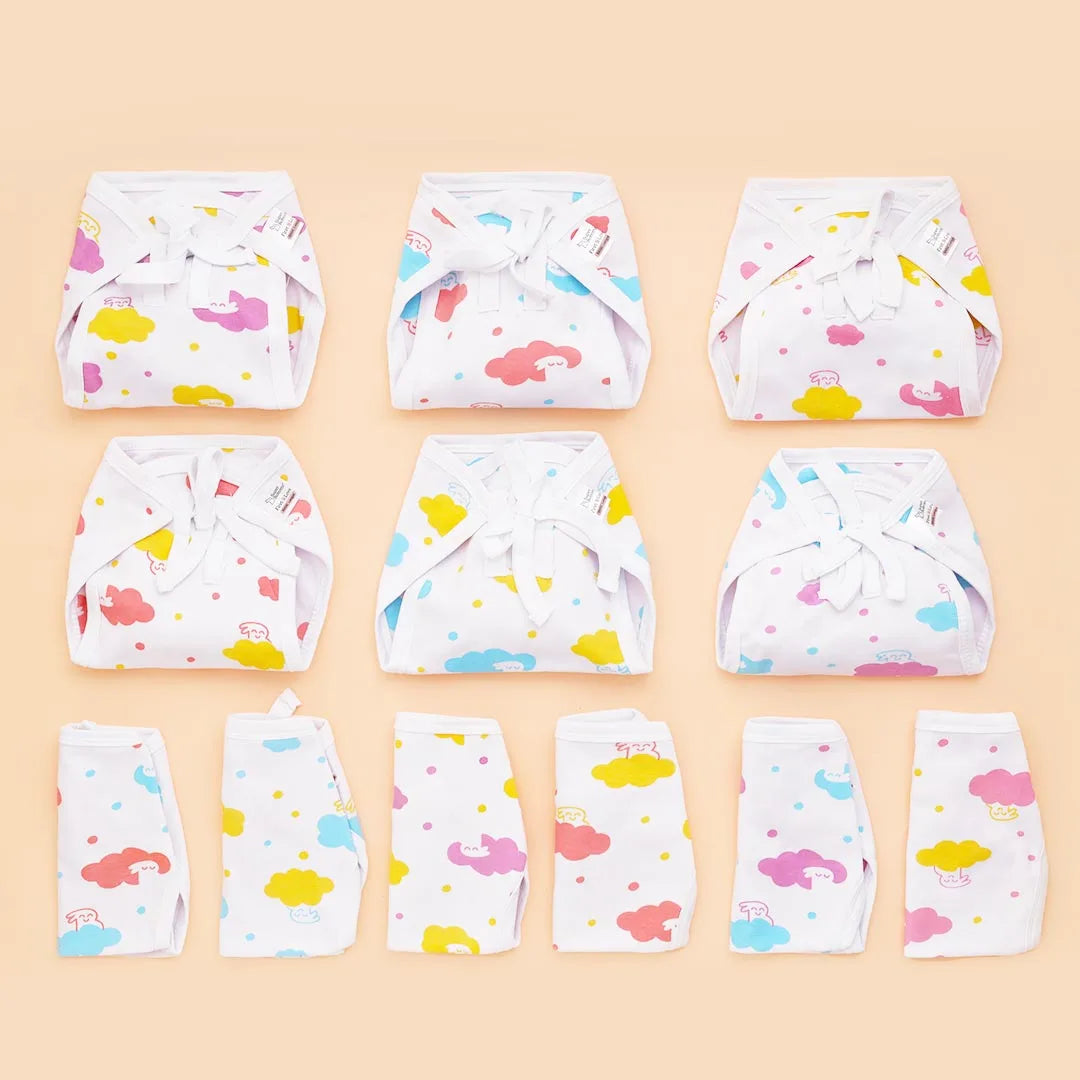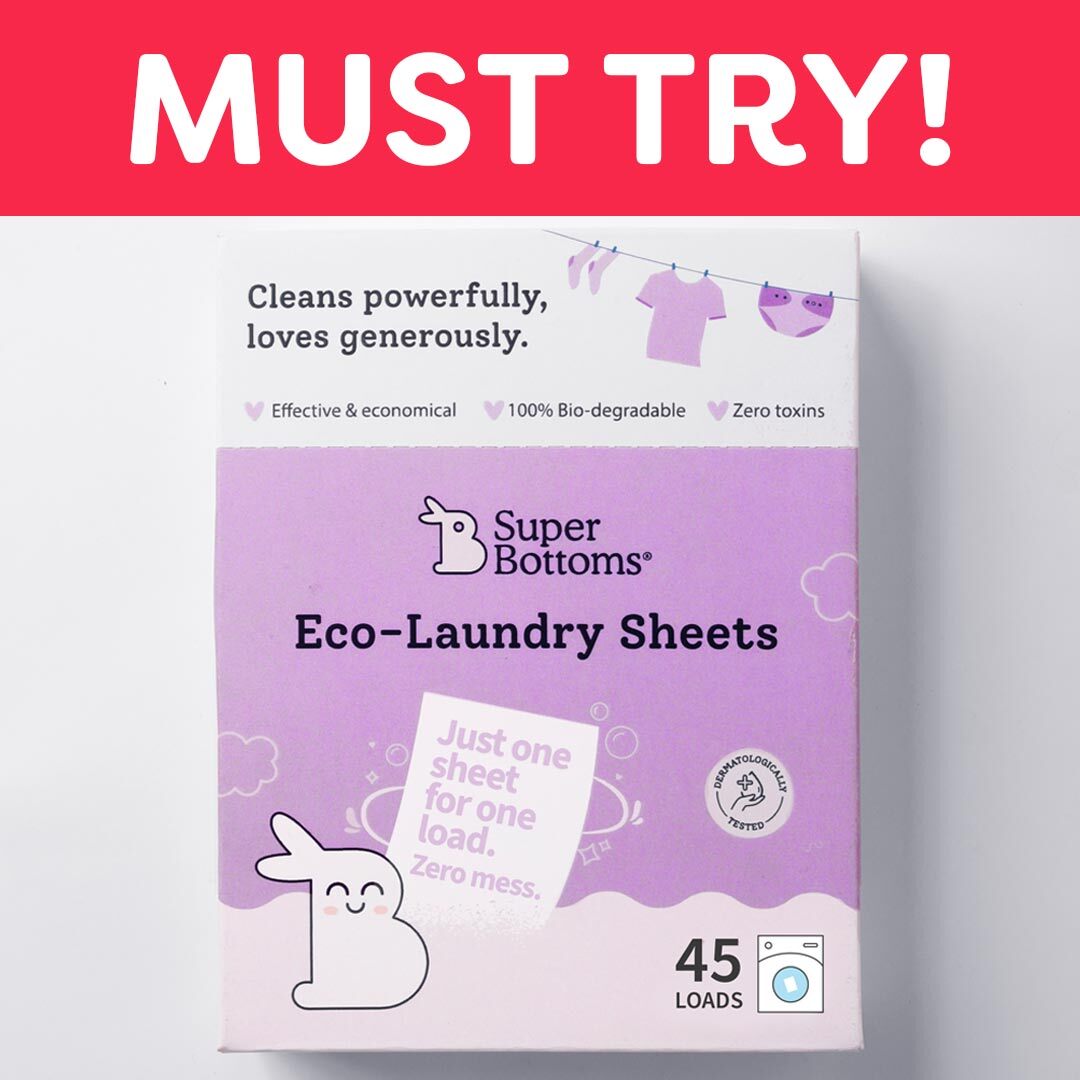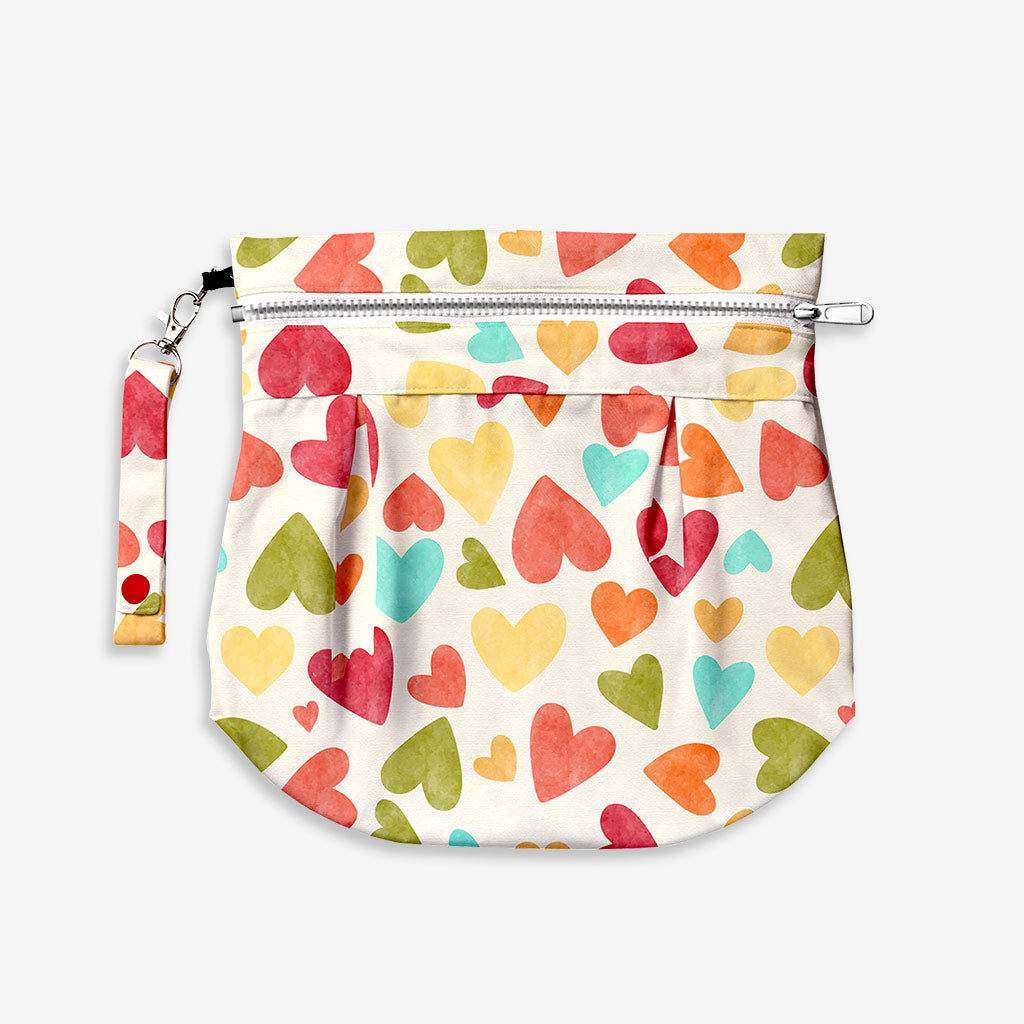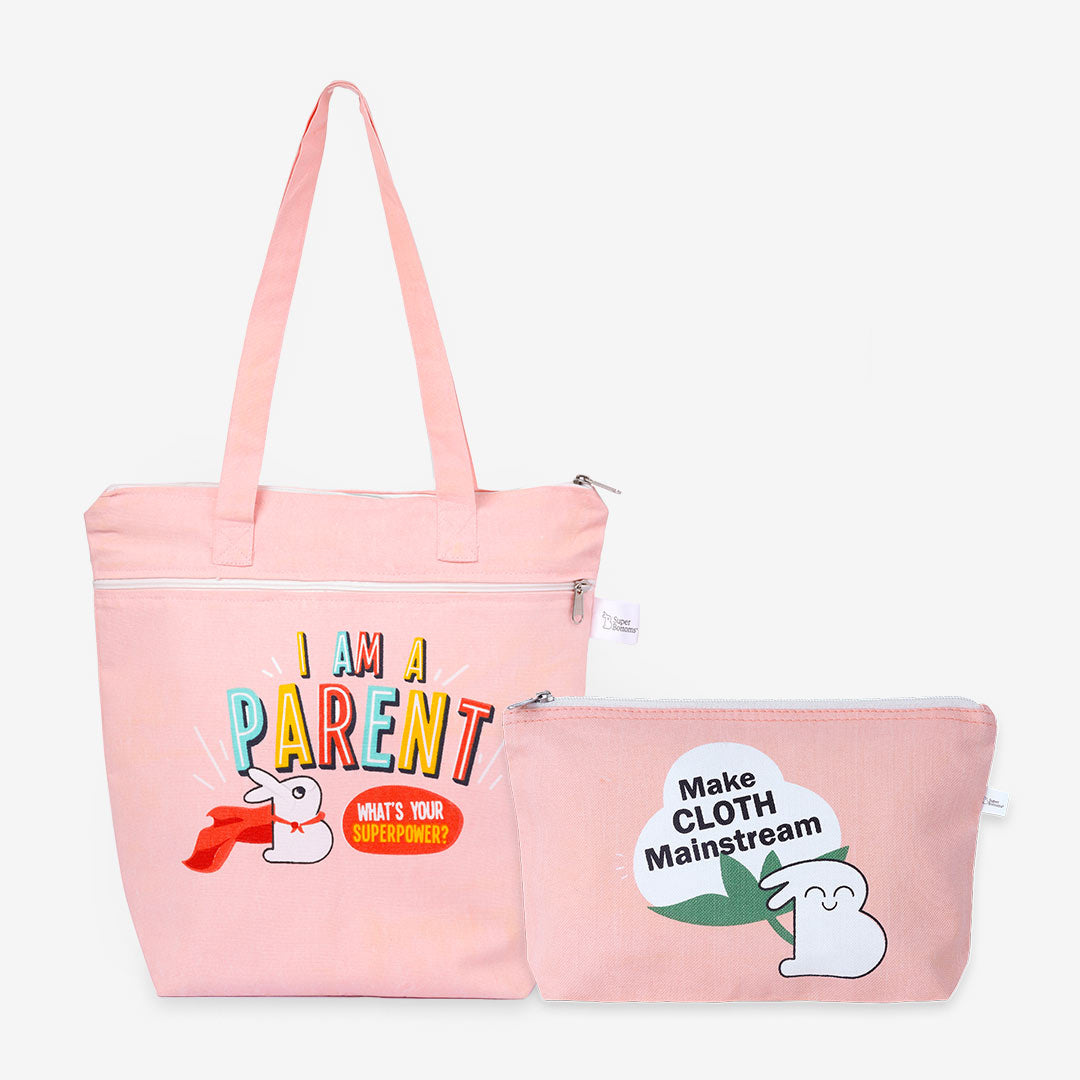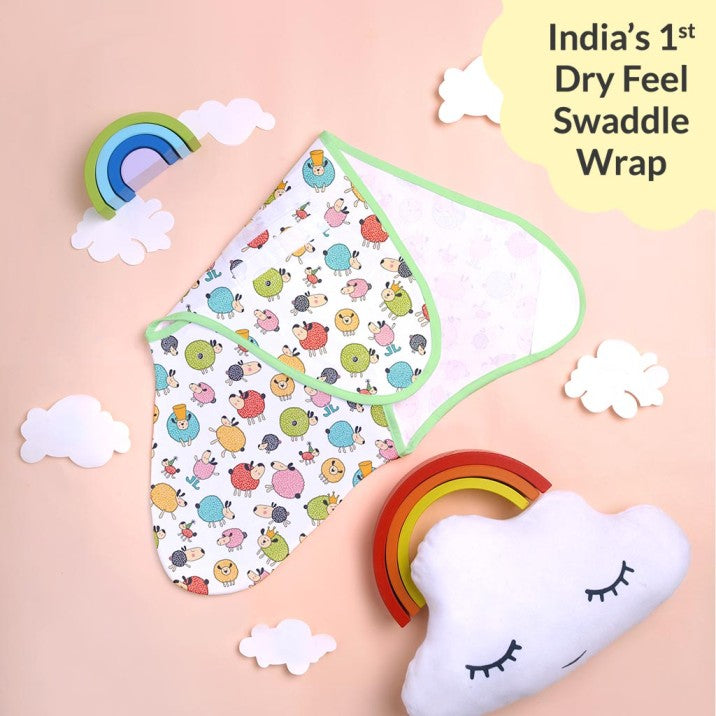Most of the time, when a parent talks about their baby teething symptoms, it usually sounds like a nightmare to first-time parents. While teething can be a painful phase for many, knowing about it and being informed can prepare you and make it easier to help your baby through this phase. So, let's make the monstrous journey of teething a bit easier. Read on!
What is Baby Teething Symptoms?
Medically known as odontiasis, in simple words, when do babies start teething is the phase when your baby's teeth begin to come through their gums. From the time they cut their first tooth till they get all molars, the whole phrase is teething for babies.
When Do Babies Start Teething
When do babies start teething? Usually, the phase of teething begins at the age of 4 months. However, it can start later at around seven months, while it can be delayed until the first birthday for some. The milestones can differ for different babies; thus, there is nothing to worry about if your baby doesn't start teething sooner.
What If Teething Starts Later Than You Expect?
It is important to remember that the baby teething age reference charts are just indicative and an average of when babies start teething. Just like some kids might start teething earlier than the average age range, some might fall outside the scope and teeth later. So, you do not need to worry even if your baby doesn't cut his first tooth until his birthday.
However, a parent's instinct is always right. If you feel like your child has a dental concern and you need to consult a specialist, it will only put you at ease or help start early treatment, if required, by doing so.
How Long Does Teething Last?
The timeline and duration of teething will vary for each baby. The first tooth of your baby, which will be a lower central incisor, will erupt at around six months of age. Followed by Canines and first molars, the second molar, and the last milk tooth will appear at about 26 – 33 months. This means the teething will last almost two years, and it is always better to be prepared and know what to expect.
|
Limited Offers Ending Sooner - BUY NOW Now or never offers live on the SuperBottoms website. Take advantage of the ccc-before discounts & deals on our offer page! Stock up on the bestselling UNO diapers, accessories & other popular SuperBottoms baby and mom products now available in deals and discounts. HURRY, the deals are live till stocks last! |
How Many Teeth Will Your Baby Have?
The first set of teeth that your baby will grow is the primary teeth, also known as milk teeth. By the age of 2 or 3, your baby will have 20 teeth which will include –
1 ▪ Four central incisors
2 ▪ Four lateral incisors
3 ▪ Four canines 4 ▪ Four first molars
5 ▪ Four-second molars
Around the age of six, these primary teeth will start to fall off, and your baby will grow new teeth – permanent teeth.
Signs And Symptoms of Teething
A baby in a teething stage can be very irritated because of the pain and other baby teething signs/ symptoms that follow. Thus, parents and caregivers must know these symptoms to help distressed kids.
Here are the most common baby teething symptoms –
1 ▪ Irritability – Due to baby teething pain, your little bundle of joy will be fussier and more irritated than usual during the teething phase.
2 ▪ Disturbed sleep - It is one of the most common baby teething problems your little one will experience. Due to the pain and irritation, they will not sleep well, keep getting up, and even cry.
3 ▪ More drooling – Experts believe saliva soothes gums, and thus babies drool more than usual when teething.
4 ▪ Chewing on things – Gnawing or chewing on things helps soothe inflamed and sore gums. Thus, your baby might suddenly become fond of a hard toy or baby teething ring to chew on.
5 ▪ Sore, swollen gums – The teeth which are about to erupt; the gums in that area might look swollen and feel sore for your baby.
6 ▪ Low-grade temperature – Baby teething fever is another very common sign indicating pain and irritation in the gums for babies. This will not be a high fever but just a slight elevation in the body temperature. If your baby's body temperature is more than 100 degrees, it is advised to consult the pediatrician.
Baby Teeth Chart
The following baby teeth chart shows in what order and around which month your baby will have the 20 teeth mentioned in the section "How Many Teeth Will Your Baby Have?
|
Teeth Type |
Top Set |
Bottom Set |
|
Central Incisors |
8 – 12 months |
6 – 10 months |
|
Lateral Incisors |
9 – 13 months |
10 – 16 months |
|
Canines |
16 – 22 months |
17 – 23 months |
|
First Molars |
13 – 19 months |
14 – 18 months |
|
Second Molars |
25 – 33 months |
23 – 31 months |
Source – American Dental Association
How To Soothe Your Teething Baby?
1 ▪ Many parents have tried and benefited from giving their baby something cold to chew on to help soothe the gums. A cold pacifier, baby teething toys that are filled with water and can be frozen, a clean wet washcloth, and a frozen carrot are a few examples of things that can help.
2 ▪ Massaging your baby's gums with a clean finger helps soothe them. As mentioned, dipping your finger in cold water will also benefit something hard to chew on.
3 ▪ Offering foods that are hard to chew also offers something healthy for babies to chew on. For example, sugar-free biscuits, homemade toast, and nankhatai (cookies) are very helpful for babies to soothe their painful teething gums.
4 ▪ It is not just the teething pain but also the drool that dries around the chin and lips that irritates the baby during the teething phase. So, keep cleaning the spit with a soft cloth occasionally.
5 ▪ Sometimes, no baby teething remedies work, and the only option left is to opt for baby teething medicine. Please ensure you speak to your baby's pediatrician before giving them any pain medication to soothe teething pains.
Dental Care for Babies
Although your baby's primary teeth will eventually fall off, developing good habits, even when dental hygiene is essential, will help your baby adopt healthy habits early on. Consider the following from an early age –
1 ▪ Start brushing your baby's teeth when the first tooth erupts. There are many baby finger brushes available that you can wear on your finger and brush the teeth and gums of your baby.
2 ▪ Once your baby is grown enough to hold a brush, get a fluoride-free toothpaste and a toothbrush and let them have fun exploring the fun of brushing. Make it a routine and get them to brush their teeth twice a day after kids have had a dessert.
3 ▪ Sweetened drinks like flavored milk, sugary health mixes for milk, cold drinks, etc., are the best friends of cavities. Avoid sugary and unhealthy drinks and develop a habit of healthy drinks in babies for good dental health.
4 ▪ Similarly, chocolates, sweets, and sugary treats threaten good dental health. So, avoid offering too many sweets to kids regularly.
5 ▪ One crucial thing that many parents avoid is regular dental check-ups. Do not follow the "Visit a doctor only when something is wrong" for kids. Regular dental check-ups can avoid painful cavities or other dental issues that might get detected later.
Some Interesting Facts About Baby Teeth
Here are some worth-knowing facts about baby teeth that you might find interesting!
1 ▪ It is often prescribed that kids use fluoride-free toothpaste. Although fluoride is an essential mineral for teeth, it can be dangerous if ingested. Thus, until babies do not learn to spit the toothpaste out properly, they should be offered child-friendly toothpaste.
2 ▪ Girls may erupt teeth sooner than boys do.
3 ▪ The primary teeth are whiter than permanent teeth.
4 ▪ On average, two sets of teeth (4 teeth) will erupt every six months.
5 ▪ A child will have only 20 primary teeth. However, after falling, they will be replaced by 28 – 32 permanent or secondary teeth.
So, until the teeth start to show and lighten your room with their smile, enjoy the toothless grin of your little one. The teething phase and even a bit of discomfort or pain are unavoidable, but ensuring that you are there to soothe them and help them through this phase with the proper knowledge is vital.
Conclusion
In conclusion, when your baby begins teething, it can be a challenging time for both them and you. By understanding the symptoms, knowing when babies typically start teething, familiarizing yourself with the baby teeth chart, and recognizing the signs of teething, you can effectively help your little one through this milestone. Some helpful tips for soothing a teething baby include offering safe teething toys, providing gentle gum massages, using chilled teething rings or cloths, and offering cold, soft foods. It's important to remember that every baby is different, and what works for one may not work for another. Patience, comfort, and love are key when supporting your teething baby, as this phase will pass with time, leaving behind a bright and toothy smile.
MESSAGE FROM SUPERBOTTOMS
Hola, New Moms and Dads! We at SuperBottoms ensure that you have the best and safest products for your babies, no matter what corner of India or the world you are in. SuperBottoms is suitable for your baby’s delicate skin, all seasons, and babies at all stages of the cloth diapering and potty training journey! SuperBottoms is an absolute must-have for you and your child if you live in Canada, Kuwait, the United States, Qatar, Hawaii, Bahrain, Armenia, the United Arab Emirates, or the Philippines.
Frequently Asked Questions
Q1: What are the common symptoms of teething in babies?
Ans: Common teething symptoms include excessive drooling, swollen or sensitive gums, irritability or fussiness, difficulty sleeping, loss of appetite, and biting or chewing on objects.
Q2: When do babies typically start teething?
Ans: Most babies start teething between 4 and 7 months of age, but it can vary. Some babies may begin teething as early as 3 months, while others may not start until after their first birthday.
Q3: What does the baby teeth chart look like?
Ans: The baby teeth chart illustrates the order in which primary (baby) teeth typically erupt. It shows the expected timeline for each tooth, including incisors, canines, and molars.
Q4: What are the signs that indicate my baby is teething?
Ans: Signs that your baby is teething include increased drooling, swollen or bulging gums, fussiness or irritability, disrupted sleep patterns, a desire to chew on objects, and sometimes a low-grade fever.
Q5: At what age do babies usually begin teething?
Ans: Babies typically begin teething between 4 and 7 months of age. However, it's important to remember that each baby is unique, and some may start teething earlier or later.



